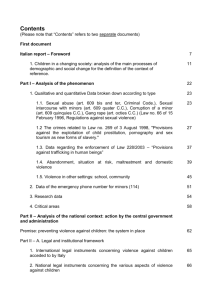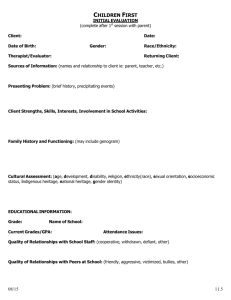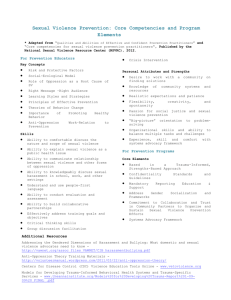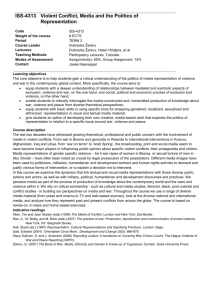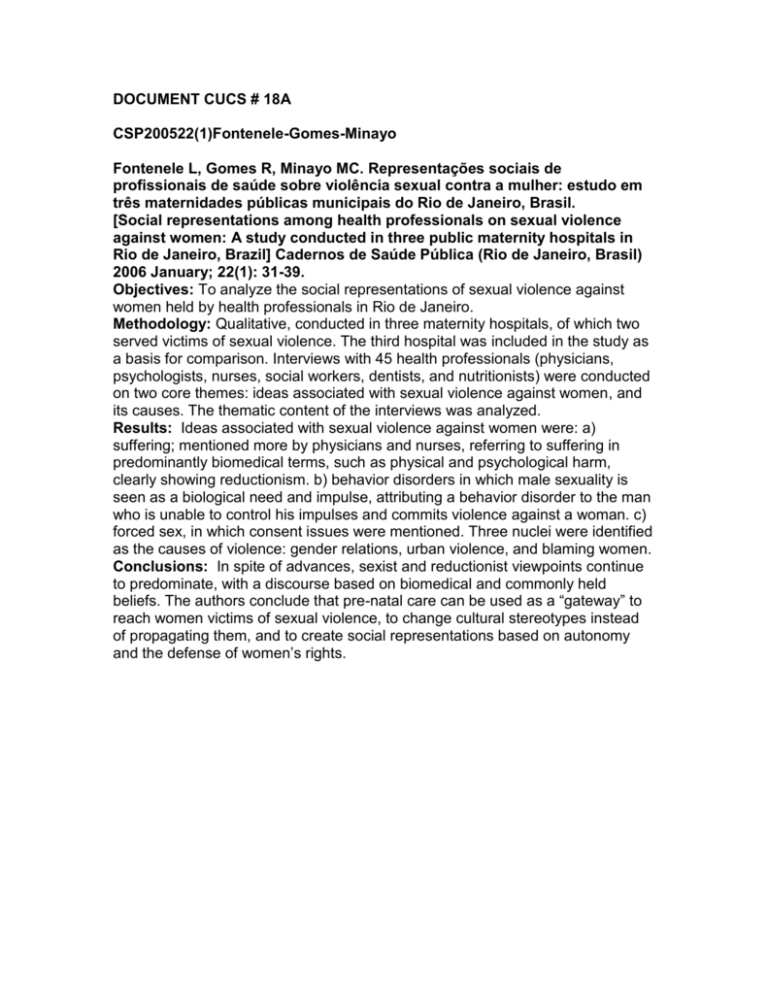
DOCUMENT CUCS # 18A
CSP200522(1)Fontenele-Gomes-Minayo
Fontenele L, Gomes R, Minayo MC. Representações sociais de
profissionais de saúde sobre violência sexual contra a mulher: estudo em
três maternidades públicas municipais do Rio de Janeiro, Brasil.
[Social representations among health professionals on sexual violence
against women: A study conducted in three public maternity hospitals in
Rio de Janeiro, Brazil] Cadernos de Saúde Pública (Rio de Janeiro, Brasil)
2006 January; 22(1): 31-39.
Objectives: To analyze the social representations of sexual violence against
women held by health professionals in Rio de Janeiro.
Methodology: Qualitative, conducted in three maternity hospitals, of which two
served victims of sexual violence. The third hospital was included in the study as
a basis for comparison. Interviews with 45 health professionals (physicians,
psychologists, nurses, social workers, dentists, and nutritionists) were conducted
on two core themes: ideas associated with sexual violence against women, and
its causes. The thematic content of the interviews was analyzed.
Results: Ideas associated with sexual violence against women were: a)
suffering; mentioned more by physicians and nurses, referring to suffering in
predominantly biomedical terms, such as physical and psychological harm,
clearly showing reductionism. b) behavior disorders in which male sexuality is
seen as a biological need and impulse, attributing a behavior disorder to the man
who is unable to control his impulses and commits violence against a woman. c)
forced sex, in which consent issues were mentioned. Three nuclei were identified
as the causes of violence: gender relations, urban violence, and blaming women.
Conclusions: In spite of advances, sexist and reductionist viewpoints continue
to predominate, with a discourse based on biomedical and commonly held
beliefs. The authors conclude that pre-natal care can be used as a “gateway” to
reach women victims of sexual violence, to change cultural stereotypes instead
of propagating them, and to create social representations based on autonomy
and the defense of women’s rights.






